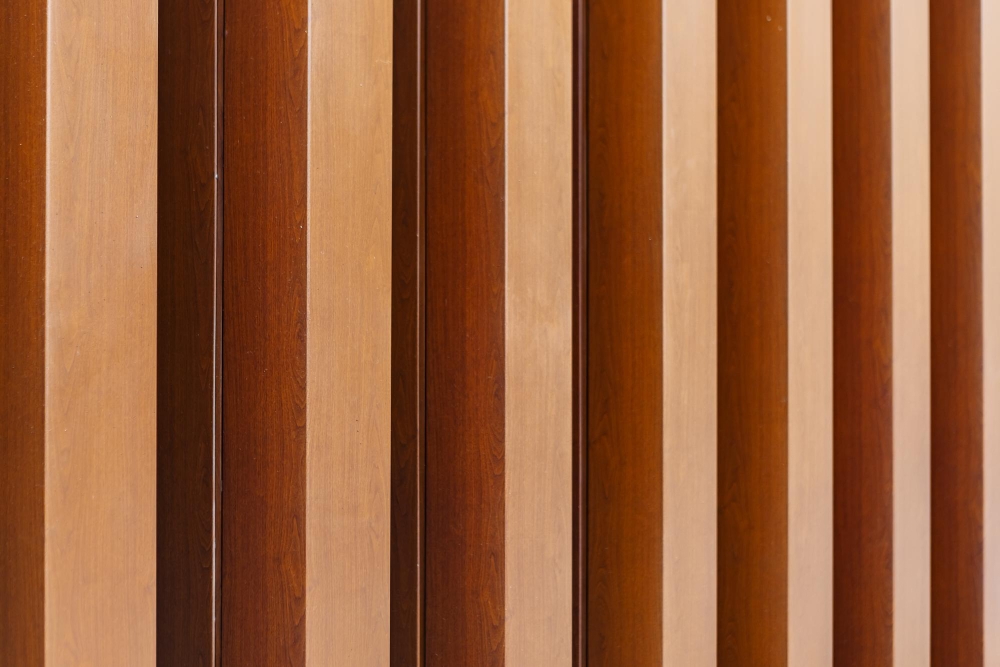The Environmental Impact of Using Biowood in the Philippines for Construction

In recent years, sustainable construction has gained momentum in the Philippines as developers and homeowners seek eco-friendly alternatives to traditional building materials. One such innovation is Biowood, a composite material made from recycled wood and plastic, offering the durability of conventional wood while reducing environmental harm.
But how exactly does Biowood contribute to a greener future? In this article, we explore its environmental benefits, sustainability features, and long-term impact on the local construction industry.
Reduced Deforestation and Sustainable Sourcing
Unlike natural wood, Biowood is made from recycled wood fibers and polymers, which considerably reduces the demand for freshly cut lumber. By reducing the need for logging, it helps to preserve Philippine forests, which are home to a variety of plant and animal species. These forests operate as natural carbon sinks, absorbing significant volumes of CO2 while minimizing the effects of climate change.
Deforestation remains a serious environmental concern in the Philippines, resulting in habitat loss, soil erosion, and higher greenhouse gas emissions. The usage of this material helps to combat illicit logging and forest degradation, ensuring that natural timber supplies are preserved for future generations.
Additionally, because Biowood is made from renewable materials, it promotes a circular economy in which waste goods are recycled rather than discarded. Biowood allows developers and households to contribute to environmental protection while still enjoying the aesthetic and functional benefits of traditional wood.
Lower Carbon Footprint
Biowood's production technique is intended to be more sustainable than typical timber processing, resulting in lower carbon emissions throughout its lifecycle. Unlike real wood, which must be logged, cut, dried, and chemically treated, Biowood is created from recycled wood fibers and plastics, considerably reducing its environmental effect. Biowood minimizes the demand for new lumber by recycling resources that would otherwise go to waste, while also decreasing energy-intensive production processes.
Furthermore, Biowood's lightweight nature boosts its environmental benefits. Traditional hardwoods are heavier and require more fuel for transportation, resulting in higher greenhouse gas emissions. In contrast, Biowood's lighter composition makes it easier and more cost-effective to transport, reducing fuel usage and carbon footprint. This makes Biowood a greener option for construction projects, particularly in urban regions like Metro Manila, where sustainability and efficiency are becoming increasingly important in modern infrastructure development.
Minimized Waste and Recyclability
Biowood is created utilizing recycled wood fibers and polymers, which considerably minimizes building waste that would otherwise end up in landfills. Traditional wood products produce a large amount of scrap material, sawdust, and discarded pieces, which contributes to environmental damage. Biowood reduces waste output by using recovered materials, supporting a more sustainable building sector.
Furthermore, Biowood is completely recyclable, which means that when it reaches the end of its life, it may be recycled into new materials rather than being discarded. This contributes to a circular economy, in which building materials are reused rather than continuously mined from natural resources.
Biowood provides a long-term sustainable answer to construction projects by minimizing landfill waste and increasing material reuse. Its eco-friendly design reflects the growing need for green building practices, making it an excellent choice for developers and homeowners that value sustainability and environmental responsibility.
Longer Lifespan and Energy Efficiency
Biowood outperforms natural wood in terms of endurance due to its resistance to termites, dampness and decay. Traditional wood, particularly in tropical regions such as the Philippines, is very vulnerable to pest infestations, mildew growth, and rot, necessitating regular upkeep and ultimately replacement. In contrast, Biowood's composite construction ensures long-term use, making it an excellent choice for both indoor and outdoor applications.
Biowood lasts far longer than ordinary lumber, reducing the need for constant repairs and replacements, lowering resource use over time. Less frequent replacements result in fewer trees killed, less energy consumed in production, and less waste produced—all of which contribute to a more sustainable construction business. Furthermore, its longevity results in cost savings for homeowners and developers who invest in long-lasting, environmentally responsible materials without sacrificing aesthetics or structural integrity.
Non-Toxic and Eco-Friendly Composition
Traditional wood treatments frequently involve the use of hazardous chemicals such as insecticides, fungicides, and preservatives to guard against termites, rot, and decay. These compounds, which include chromated copper arsenate (CCA) and formaldehyde-based adhesives, can leach into the soil and water, posing significant environmental and health concerns. Over time, exposure to these compounds can cause pollution, ecological disruption, and even health problems for construction workers and building occupants.
Biowood, on the other hand, is produced without hazardous additives, making it a safer and more environmentally friendly option. Its innate resistance to pests, dampness, and decay removes the need for chemical treatments, lowering indoor air pollution and environmental contamination. This makes Biowood a fantastic choice for eco-conscious builders, guaranteeing that homes, offices, and commercial buildings are healthier and more sustainable while reducing negative environmental consequences.
Key Takeaway
Incorporating Biowood into construction projects, developers in the Philippines can reduce environmental impact, promote sustainable building practices, and contribute to a greener future. As the demand for eco-conscious solutions grows, Biowood stands as a viable alternative to traditional materials—proving that innovation and sustainability can go hand in hand.
- Questions and Answers
- Opinion
- Motivational and Inspiring Story
- Technology
- Live and Let live
- Focus
- Geopolitics
- Military-Arms/Equipment
- Security
- Economy
- Beasts of Nations
- Machine Tools-The “Mother Industry”
- Art
- Causes
- Crafts
- Dance
- Drinks
- Film/Movie
- Fitness
- Food
- Games
- Gardening
- Health
- Home
- Literature
- Music
- Networking
- Other
- Party
- Religion
- Shopping
- Sports
- Theater
- Health and Wellness
- News
- Culture

